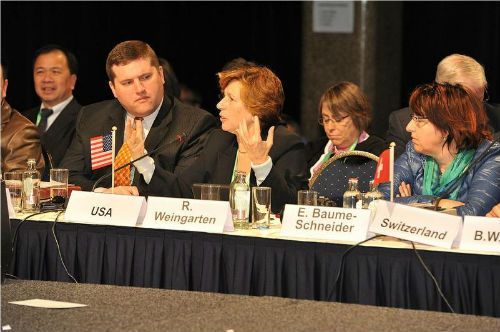
Lassen Sie uns über Lehre sprechen. Randi Weingarten ist der Präsident der American Federation of Teachers (AFT), die Pädagogen und Fachleute des Gesundheitswesens dar, um sicherzustellen, dass Fairness und Demokratie herrscht. Ihrer langen Karriere als Präsident der United Federation of Teachers brachte ihr die Auszeichnung als eines der einflussreichsten New Yorker im New York Observer. Ihr Engagement für die Bildungsreform und ihre Unterstützung für die lokalen Gewerkschaften ist ein inspirierendes Beispiel dafür, was notwendig ist, um nachhaltige Gemeinschaft Lösungen für die Zukunft der Bildung zu sichern. In diesem Interview, Ich spreche mit Randi über das, was wir von erfolgreichen Bildungsmodelle im Ausland lernen, die zunehmende Bedeutung von Lehrern mit robusten Welt und kulturelle Kompetenz, und wie die USA einen besseren Job Unterstützung ihrer Lehrer tun. Ihre Erkenntnisse global informiert sind, was wir sind gekommen, um von Weingarten erwartet, der schreibt auch eine monatliche Kolumne, “Das Wichtigste,” für die New York Times’ Sonntag schreiben.
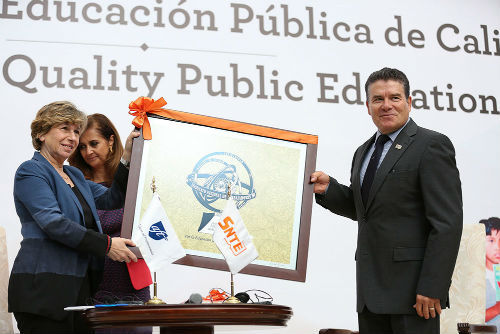
Randi, alle Länder eine gemeinsame Wunsch, ein hochwertiges Bildungssystem, das Kindern bereitet für den Erfolg in ihrem Leben schaffen zu teilen. Sie haben die internationalen Gipfeltreffen am Lehrberuf besucht und getan Studienaufenthalte in anderen Ländern – Was beeindruckt Sie am meisten aus der ganzen Welt, damit wir in der Lage, in den USA zu nutzen?
An den Tischen sitzen Summit diese letzten Jahre, Ich habe die vielen Möglichkeiten, die Lehrer bekommen mehr Respekt in anderen Ländern als hier in den Vereinigten Staaten gehört,. Die Lehrer werden, um angehört, nicht nur von Eltern und Administratoren, sondern auch von der Politik. Ihre Stimme zählt, in Entscheidungen, die sie beeinflussen, ihre Schüler und ihre Schulen. Dies wird durch die Ergebnisse des Lehr- und Lern Internationale Umfrage verstärkt (GREAT) welche zeigen, dass, in Ländern, in denen Lehrer glauben, ihren Beruf geschätzt, es gibt höhere Schülerleistungen.
Wir wissen, dass in Schulen, in denen die Lehrer sind vertrauenswürdig und ihre Stimmen bewertet werden, Lernen wird jedermanns Aufgabe. Das gesamte Team arbeitet für den Erfolg der gesamten Schule. Ich habe es selbst gesehen. Beispielsweise, in Finnland, Singapur und Japan, die Vorgehensweise ist ganz anders als die Top-down-, my-way-or-die-Highway-Sanktionen und die Schuld Ansatz zur Rechenschaftspflicht wir in zu vielen Schulen in den USA zu sehen. Wenn wir unser Ziel, eine qualitativ hochwertige öffentliche Bildung für jedes Kind zu erreichen, wir brauchen, um in Vorbereitung lehnen, Praxis, und die Zusammenarbeit–keine High Stakes-Tests und schmalen Rechenschaftspflicht.
Als Lehrer und Schulleiter können sich auf die Lehrpläne zusammenarbeiten, Lehr-Praxis und die Einschätzungen, es zu besseren Ergebnissen führt. Schauen Sie sich Japans Lektion Studie, oder Lehrer teilen in Shanghai. Leider, in too many places in the U.S., policy and practice just don’t support collaboration. Did you know that U.S. teachers were less likely than the TALIS average to report that they ever teach in a team or take part in collaborative professional learning? And that fewer than half of the U.S. teachers surveyed in TALIS had ever observed other teachers’ classes or provide feedback?
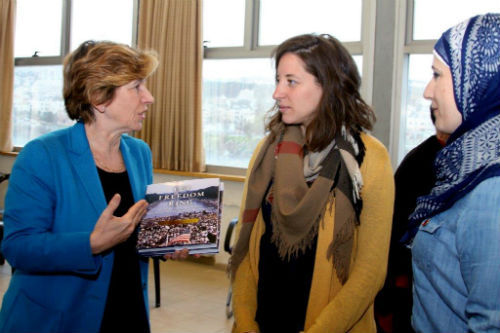
Are our teachers sufficiently equipped to deal with global competencies? What needs to be improved? Are we doing enough to expose our students to other cultures?
Let’s start with what it means to be globally competent, which I believe is the capacity to understand and act on issues of global significance. Das zu tun, students need to build respectful and trusting relationships; work collaboratively; apply knowledge to solve problems; communicate effectively in different contexts; and persist through challenges and setbacks.
Außerdem, students gain global and cultural competency when they are exposed to people who are different than they are, und in der Technik, Musik, Geschichte und Kultur anderer Nationen, races and peoples. But in too many schools in the U.S., over-testing and under-funding are narrowing curricula, as public schools across the country become increasingly re-segregated.
Das Erreichen globale Kompetenz erfordert auch Pädagogen kulturell kompetent zu sein. Effektive Lehrer wissen, wie Kinder lernen und wachsen, sie den akademischen Inhalt sie unterrichten weiß, AND they know how to teach that content to diverse groups of students using culturally responsive practices. All of that begins in teacher preparation programs which must include a focus on content, an understanding of cultural diversity and a strong clinical experience where prospective teachers can watch experienced teachers in action and practice under their supervision – kind of like a medical residency. We believe that, before getting a classroom of their own, prospective teachers should have the right supports and be able to demonstrate their competence. As we said in our report “Die Anhebung der Bar”, too often new teachers are tossed the keys to their classroom and left to sink or swim.
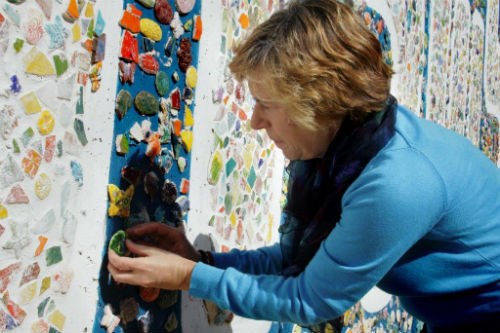
The quality of our schools can only be as good as the quality of our teachers. Are our school systems at a disadvantage vis a vis systems like that of Finland and Singapore? Schließlich, these countries place a huge emphasis on their teaching profession.
The quality of the teaching profession revolves around three things: middle class salaries, working conditions–die, as we know, are learning conditions – und die Zusammenarbeit. Teaching is both art and science; it’s a profession requiring passion, commitment and knowledge. We need to give teachers the time, tools and trust to enable them to do their job well.
In der U.S., we are a long way from truly recognizing teaching as a valued profession. This recognition starts with the compensation and benefits that befit a middle-class professional career. As President Obama recently pointed out, the top 25 hedge fund managers earn more than all kindergarten teachers in U.S. combined! (Und, those hedge fund managers pay lower tax rates than these teachers.)
Collective bargaining is the best way to secure better pay, benefits and respect. Throughout our history, unions have helped to create a vibrant middle class, and we need them now more than ever to combat growing inequality. Unions and public sector employment have been central in the efforts of African-Americans, Latinos and other traditionally marginalized groups to gain access to the middle class.
And unions matter for results, zu. OECD’s Lessons from PISA for the United States noted, and I want to quote this exactly: “The higher a country is on the world’s education league tables, the more likely that country is working constructively with its unions and treating its teachers as professional partners.”
We also know that teachers in the U.S. are facing increasing stress at work. Vor kurzem, the AFT and the Badass Teachers Association created a voluntary survey to begin to understand stress and its health impacts for teachers and other school employees. We received an overwhelming response from nearly 32,000 Erzieher. Some of the results were staggering: Nearly half of respondents are no longer as enthusiastic about their profession as they were when they started. Fewer than half are in jobs that allow them to make a lot of decisions on their own. Only one in five feels respected by government officials or the media. Nearly three-quarters often find their work stressful. Und, among the greatest workplace stressors were the adoption of new initiatives without proper training or professional development, mandated curriculum, and standardized tests.
Astonishingly, 45 percent of respondents do not get adequate breaks even to use the restroom. Noch, in spite of all of this, they are not giving up, and just 14 percent said they are very likely to seek employment outside the field of education within the next year. All this reinforces the fact that teaching will always be an essential profession, but there is much more that must be done to make it an attractive and sustainable profession in the U.S. heute.
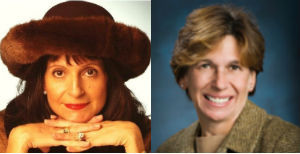
(All photos are courtesy of the AFT)
Begleiten Sie mich und weltweit renommierten Vordenkern wie Sir Michael Barber (Vereinigtes Königreich), DR. Michael Block (US-), DR. Leon Botstein (US-), Professor Ton Christensen (US-), DR. Linda Hammond-Liebling (US-), DR. MadhavChavan (Indien), Professor Michael Fullan (Kanada), Professor Howard Gardner (US-), Professor Andy Hargreaves (US-), Professor Yvonne Hellman (Niederlande), Professor Kristin Helstad (Norwegen), Jean Hendrickson (US-), Professor Rose Hipkins (Neuseeland), Professor Cornelia Hoogland (Kanada), Herr Jeff Johnson (Kanada), Frau. Chantal Kaufmann (Belgien), DR. EijaKauppinen (Finnland), Staatssekretär TapioKosunen (Finnland), Professor Dominique Lafontaine (Belgien), Professor Hugh Lauder (Vereinigtes Königreich), Herr Ken Macdonald (Vereinigtes Königreich), Professor Geoff Masters (Australien), Professor Barry McGaw (Australien), Shiv Nadar (Indien), Professor R. Natarajan (Indien), DR. PAK NG (Singapur), DR. Denise Papst (US), Sridhar Rajagopalan (Indien), DR. Diane Ravitch (US-), Richard Wilson Riley (US-), Sir Ken Robinson (Vereinigtes Königreich), Professor Pasi Sahlberg (Finnland), Professor Manabu Sato (Japan), Andreas Schleicher (PISA, OECD), DR. Anthony Seldon (Vereinigtes Königreich), DR. David Shaffer (US-), DR. Kirsten Sivesind (Norwegen), Kanzler Stephen Spahn (US-), Yves Theze (LyceeFrancais US-), Professor Charles Ungerleider (Kanada), Professor Tony Wagner (US-), Sir David Watson (Vereinigtes Königreich), Professor Dylan Wiliam (Vereinigtes Königreich), DR. Mark Wormald (Vereinigtes Königreich), Professor Theo Wubbels (Niederlande), Professor Michael Young (Vereinigtes Königreich), und Professor Zhang Minxuan (China) wie sie das große Bild Bildung Fragen, die alle Nationen heute konfrontiert erkunden.
Die Global Search for Education Community-Seite
C. M. Rubin ist der Autor von zwei weit Lese Online-Serie für den sie eine 2011 Upton Sinclair Auszeichnung, “Die globale Suche nach Bildung” und “Wie werden wir gelesen?” Sie ist auch der Autor von drei Bestseller-Bücher, Inklusive The Real Alice im Wunderland, ist der Herausgeber des CMRubinWorld, und ist ein Disruptor Foundation Fellow.
Folgen Sie C. M. Rubin auf Twitter: www.twitter.com/@cmrubinworld


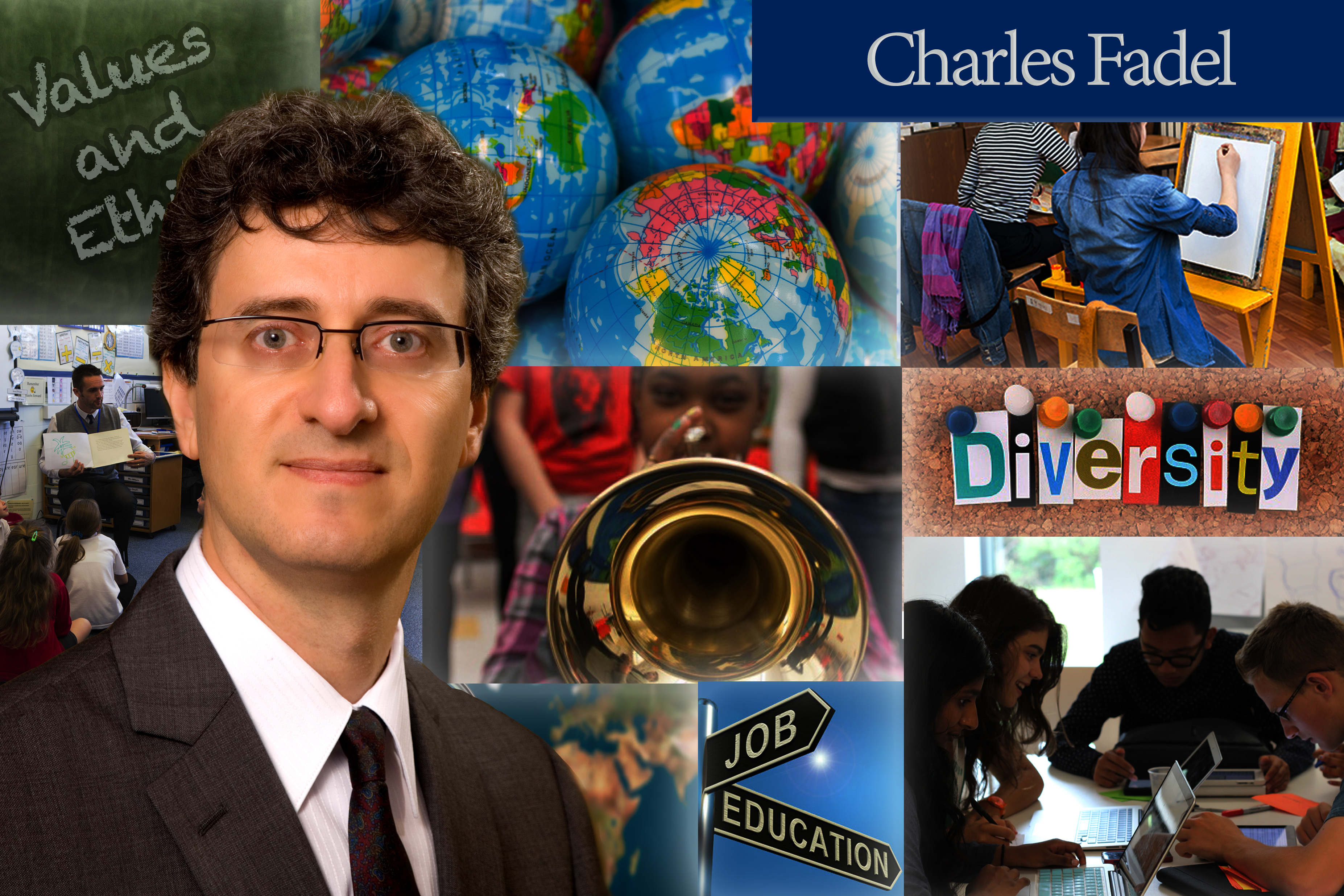
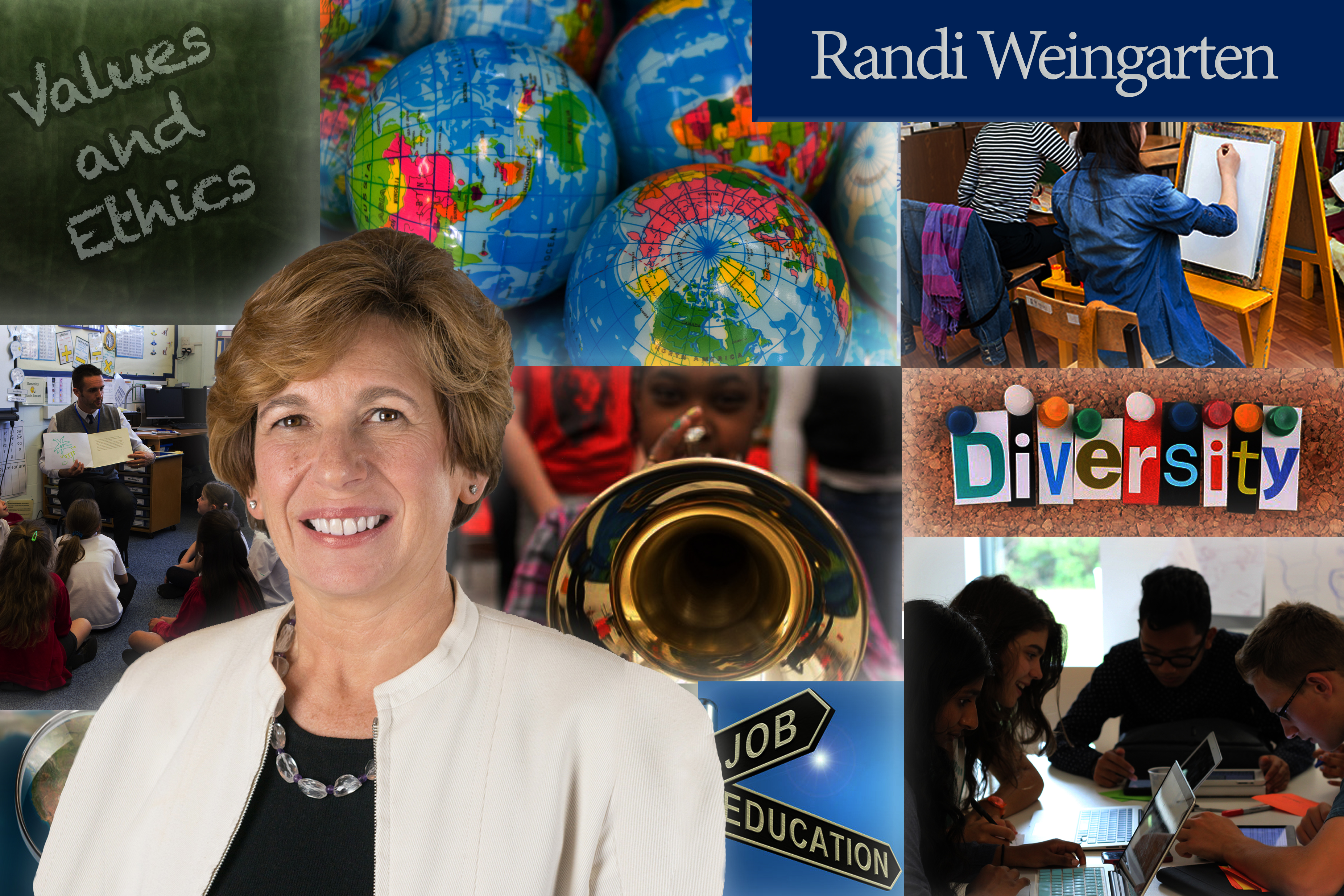
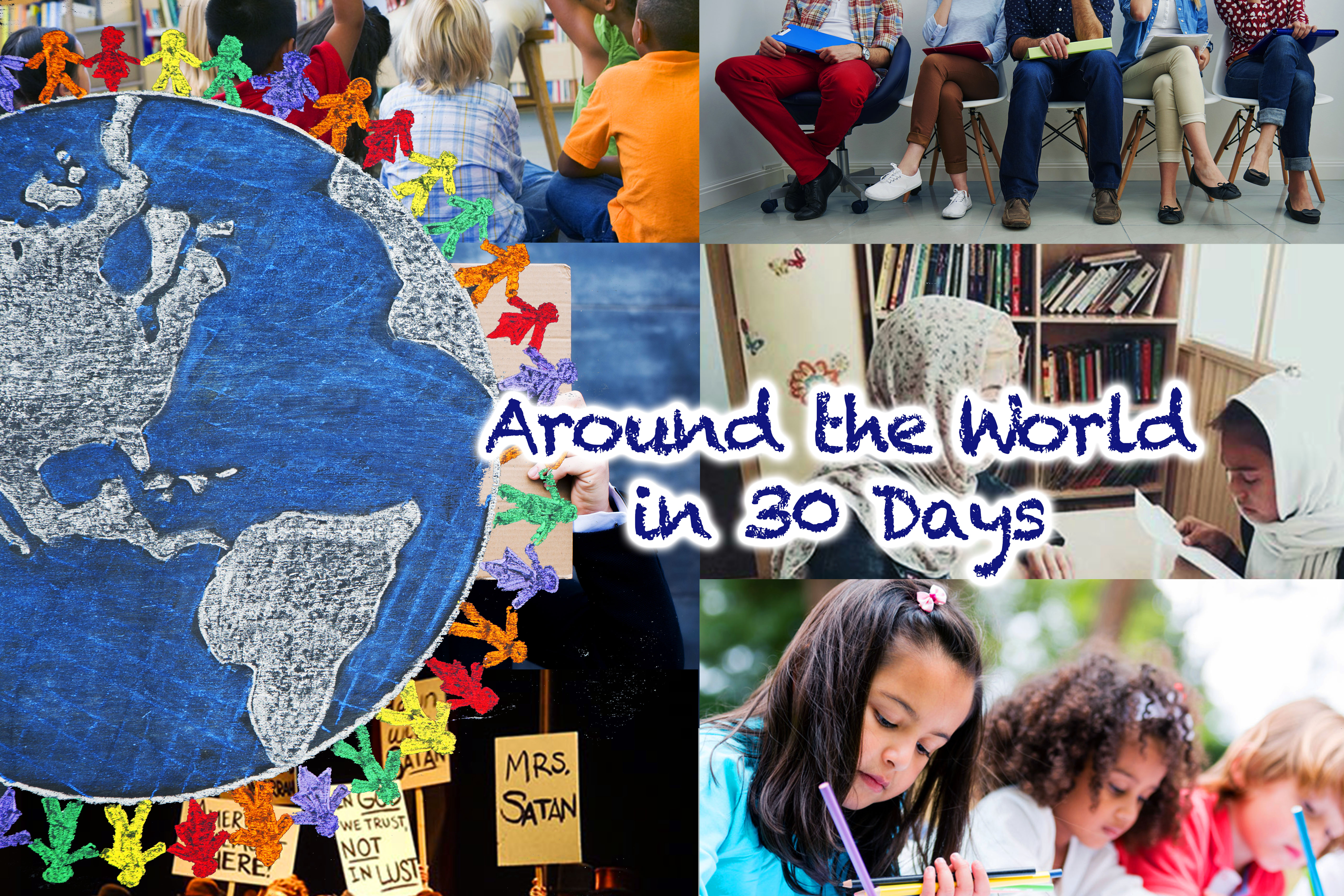

Jüngste Kommentare